A pressure washer is a handy tool that can make cleaning your car, driveway, or patio a breeze. But with so many different models on the market, it can be tough to know which one to choose. Here are a few things to keep in mind when shopping for a pressure washer:
-The type of pump: There are two main types of pumps used in pressure washers, axial and radial. Axial pumps are less expensive but require more maintenance, while radial pumps are more expensive but require less maintenance.
-The pressure: Pressure is measured in pounds per square inch (PSI). The higher the PSI, the more powerful the machine. However, more pressure isn’t always better. If you’re using a pressure washer for delicate tasks, like washing your car, you’ll want to choose a lower-pressure model.
-The flow rate: The flow rate is measured in gallons per minute (GPM). A higher GPM means the machine can clean more areas in a shorter amount of time.
-The features: Pressure washers come with a variety of features, like detergent injectors and adjustable nozzles. Decide which features are most important to you and look for a model that has them. Now that you know what to look for, you’re ready to start shopping for a pressure washer. Be sure to read here how to choose a pressure washer.
Contents
How to Choose a Pressure Washer – Select Your Desired One!
A pressure washer can really speed up numerous common household cleaning chores. It provides better cleaning with much less effort, and reduce water use in the bargain. Everything can be cleaned, including house siding, grills, bicycles, motorcycles, boats, lawn furniture, exterior windows, vehicles, walkways, patios, garage floors, decks, fences, and roofs, and more efficiently, quickly, and effectively with a pressure washer.
But the variety of pressure washer models, features and costs can be confusing. Over the years, we have purchased several pressure washers, both electric and gas-powered – and here is our experience and advice about what to look for.
Of course, you will first want to take inventory of the types of jobs you will use a pressure washer for and have a rough idea of how often you will use the pressure washer. Will you use the pressure washer close to existing electrical power outlets? Will you need an extended range to clean buildings or items far from electrical power?
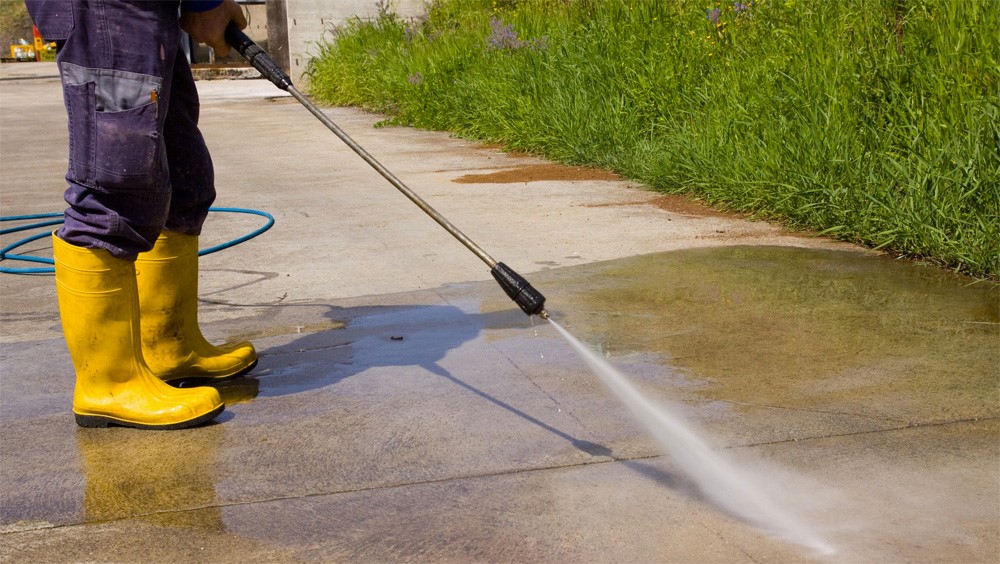
Should You Buy An Electric or Gas Powered Pressure Washer?
Electric-powered Pressure Washers
Electric pressure washers can be effective and convenient for most household cleaning jobs, but the power cord requirement limits portability. For example, suppose you are pressure washing your home’s siding or exterior. In that case, you will need to see that you have multiple outlets available and a heavy-duty extension cord so that you can move the pressure washer all the way around the perimeter of your house. Unplugging, moving, and re-plugging can add time to the work.
Many electric pressure washers require a 20-amp power circuit, so you will need a unique, heavy-duty extension cord. These cords can run $50 or more.
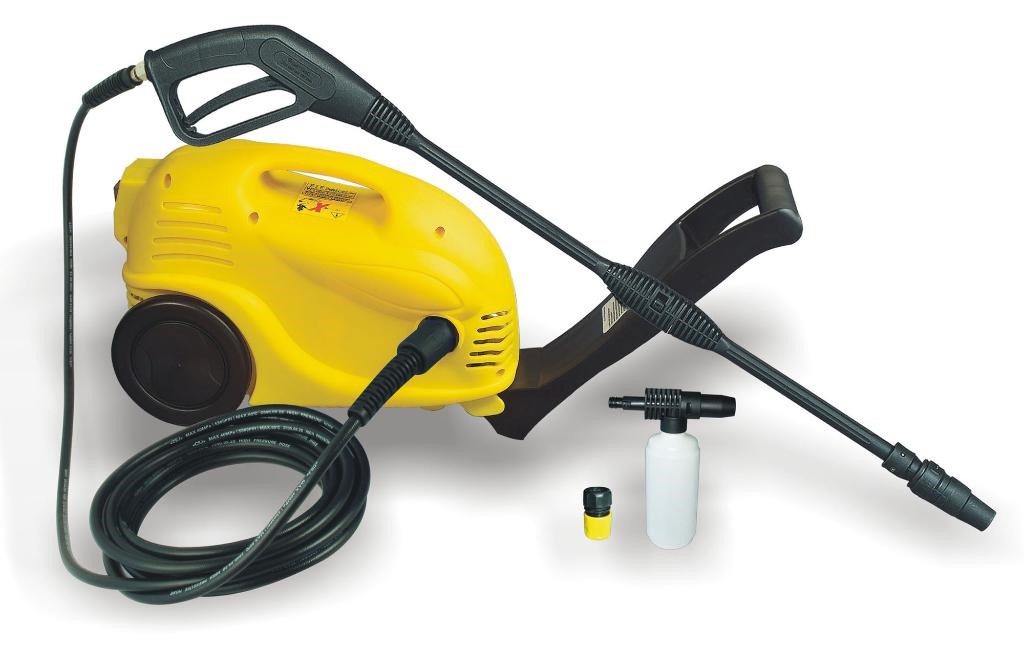
The only maintenance required for an electric-powered pressure washer is to treat the pump with a special pump lubricant when it is not going to be used for a while and with pump anti-freeze if stored in an unheated garage or shed during winter. We use a product called Pump Protect once a year at the end of the season.
Electric pressure washers are found in low-to-medium power ratings and are suitable for light-to-moderate use. Induction motors will last longer than conventional motors.
Gas-powered Pressure Washers
The Gas-powered units provide greater mobility and power but are noisier, less environmentally friendly, and require more tremendous maintenance effort. Gas-powered pressure washers come in medium-to-very high power ratings. With a gas-powered pressure washer, you will need to treat the gas with a stabilizer, and gas engines need occasional tune-ups and oil and filter changes. As with electric-powered units, you will need to treat the pump with a special lubricant when it is not going to be used for a while and with a pump anti-freeze if stored in an unheated garage or shed during winter.
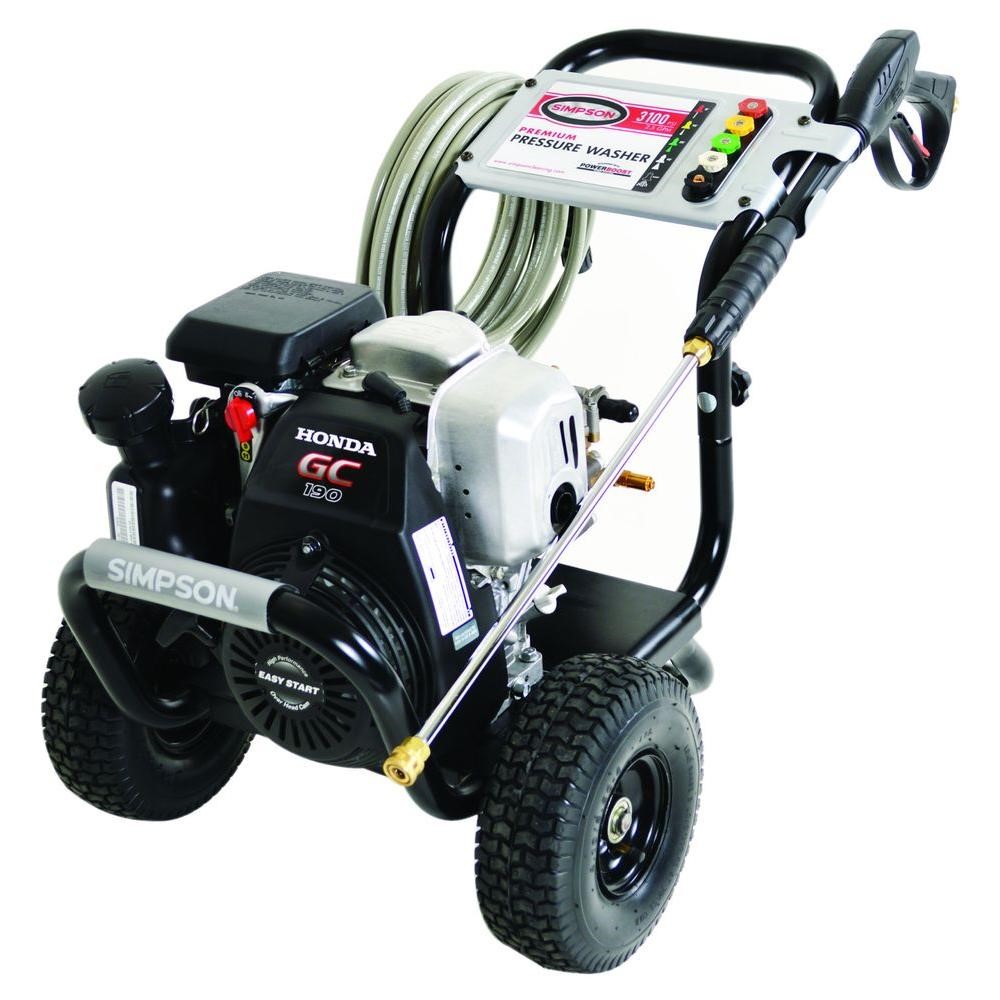
Most experts recommend brand-name engines such as Subaru, the Honda GX line, or Briggs & Stratton.
CARB-compliant gas-powered units pollute less and are required for sale in California. They usually cost a little more than a non-CARB unit. (CARB is the California Air Resources Board.)
What you need to know about PSI and GPM ratings
PSI stands for Pounds per Square Inch, a measure of the force generated by the pump. A typical garden hose provides 40-50 PSI, whereas the least powerful pressure washers generate 1,000 PSI.
GPM stands for Gallons Per Minute, a measure of the unit’s flow rate. Higher GPM will enable you to clean faster.
PSI provides cleaning power, and GPM delivers the flow of water to wash the debris away. The overall cleaning power can be expressed by multiplying GPM x PSI.
Select the PSI you need, then look for a higher GPM if you want to be able to clean faster. Most experts advise the following for PSI requirements:
- Lighter cleaning jobs such as vehicles, bicycles, grills, and lawn furniture require 1,000 – 1500 PSI.
- Cleaning smaller decks and patios will require 1,400 – 1900 PSI.
- Cleaning larger decks and patios, siding, walkways and similar jobs will require 2,000 – 3,000 PSI.
- Heavy-duty cleaning jobs such as stripping paint will require 2,800 – 4,000 PSI.
- Go up one category if you will use the pressure washer for a long time or more frequently. For example, if you have a larger house, a house + barn or garage, lengthy fence sections, etc.
- If you use the pressure washer in a commercial setting, get one rated for the more prolonged and frequent use that commercial users need.
- Most experts recommend buying a bit more power than you need, and many recommend 2,000 – 2,500 PSI for most typical homeowner applications.
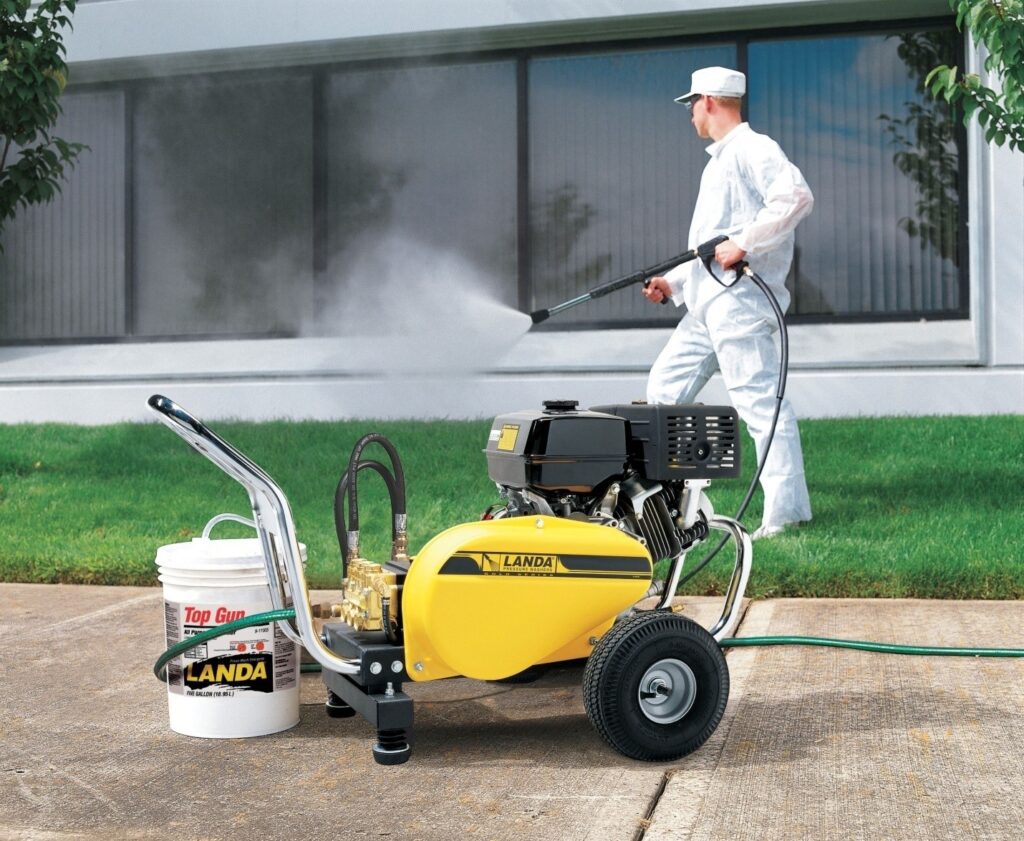
Check out the pump materials and construction.
Less expensive units will typically have axial cam or wobble pumps. These pumps can advertise as “no maintenance,” which means they are not cost-effective to repair; you just replace them if/when they break.
More expensive pressure washers will have commercial-grade triplex pumps with brass heads and ceramic plungers. Often, you will have to dig deep into the specifications or the owner’s manual (usually available online) to get the details on the pump.
Other factors to consider
Threaded brass hose connectors with O-rings are more durable and less likely to leak than snap-on connectors. Having the water and pressure hose connectors away from where they will drag in the dirt when you move the machine is preferable.
Some units have built-in detergent tanks, while others have a siphon tube that you place in the detergent container. The built-in tank is more convenient for most jobs; the siphon tube is helpful for larger jobs but makes moving the unit more awkward.
Most pressure washers come with a 20 – 30 ft hose, so having a built-in hose reel really simplifies storage. A folding handle helps with transport and storage.
Next, check out the wheels. Pneumatic or “never-flat” wheels of 10″ diameter or more will provide the best portability.
Some units, like Karcher machines, come with a variable-power wand called Vario Power Spray. Twist the wand’s barrel one way for low pressure; twist it the other way for higher pressure.
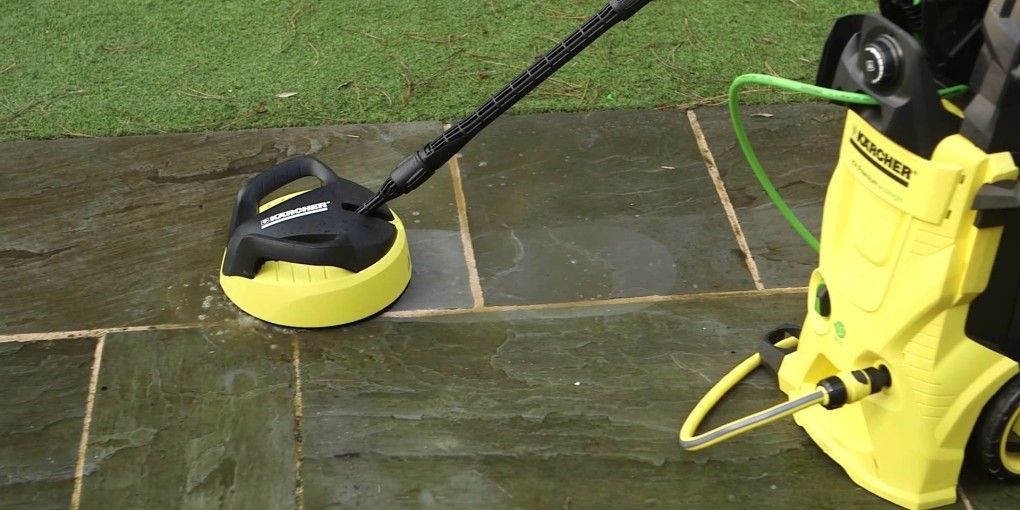
Other machines come with multiple spray tips to provide a concentrated or spread-out spray to vary the power for different jobs. For example, a 0-degree tip has a very focused spray that will clean tougher stains – but may damage vehicle paint or softwood. The 25-degree tip spreads the spray and will do most jobs. The 40-degree tip provides a wider, less powerful spray that is useful for sweeping away loose debris.
Several convenient add-ons or attachments are available for pressure washers. Karcher markets several popular attachments, such as a rotating cleaning brush, for their machines, but the connectors are specific to Karcher, so these won’t fit other brands.
Some universal attachments are available for gas-powered machines, such as a twist nozzle to vary the spray without changing tips, extension tubes to provide more reach, and a curved tip rod for cleaning first-floor gutters while standing on the ground. These universal add-ons are not brand-specific.
Conclusion
There is a wide range of pressure washers available on the market, so it is important to choose one that is suitable for your needs. If you need a powerful machine for heavy-duty cleaning, then you should opt for a gas-pressure washer. If you need a machine for light-duty cleaning, then an electric pressure washer would be a better option. It is also important to consider the water pressure and flow rate of the machine before making your purchase.